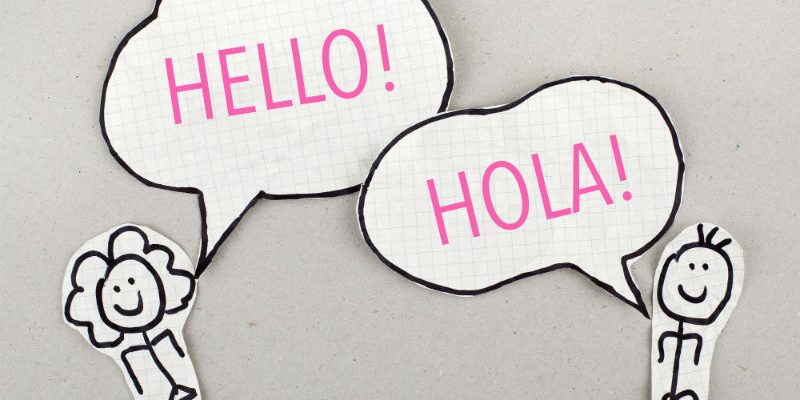It is often asked “can you learn two languages at once?” The answer seems to be yes… and no.
There are many studies of children raised in bilingual homes that demonstrate the ability to learn two languages at the same time, but it is also noted that many of these children take a little longer than others to begin to express language and read and write the different languages.
Many adults make similar observations. If you begin learning two languages at the same time, it takes longer to “get going” with either of the languages than if you learn one at a time.
And as motivation is the most critical component of successful language learning, taking longer before having useable language is quite likely to be discouraging for most people.
It is the experience of many language learners that it can be extremely difficult to acquire two languages at the same time, at the same rate, but there are a range of techniques that help make it easier to do.
The first common piece of advice is to choose two languages that are not closely related.
Although close relationships make language learning easier, generally, to learn two languages that are very similar, such as Italian and Romanian, or Spanish and Portuguese, the similarities make it difficult for your brain to know which “bucket” to put and pull vocabulary from.
Far less confusing to learn, say, French and Chinese.
It can also be a good idea to choose one language similar to one you already know, and one quite different. For example, as an English speaker, Dutch is quite similar… and Japanese quite different.
Another common piece of advice from experienced language learners is to prioritise one language over the other. For example, to spend 80% of your time on one of the languages, and only 20% of your time on the other.
Obviously you won’t progress as quickly in your second language, but you will get a start, and after getting a solid grounding in one you can switch priorities.
In this way you make the most of the motivation of quickly learning one language, while also getting your head into gear for the second.
Some language learners also suggest using different methods or tools of learning for each language, to create a mental difference between the languages. Some even suggest different coloured pens, and different areas of the home to study in.
I am currently learning both French and Ancient Greek.
I already had a basis in French, I have never had any contact with a language with a different script. I spend probably 95% of my time on French.
Ancient Greek is something that I will spend some time on in the future, but I am consolidating my French for now.
I am also learning French sign language – which is not like French at all – but I find sign languages extremely easy to learn, and so I do not have to spend a great deal of time on it.
I know when I see my French Deaf friends, I will pick up the language in a few days. However, it will help to know a lot more French, as I can use written French to ask them for the signs I don’t know.
I find I really need to focus on one language, have goals for that one, and just do the other for incidental learning to give myself a headstart for when I can focus on it more.
Also, the reality is that many of us who learn languages for a hobby are motivated by the different experiences we have learning.
Each language brings a unique perspective of the world, and that can be highly interesting for some of us… to focus on only one language can get a bit dry after a while.
In addition, one must ask the question… when do I stop learning a language?
Am I going to continue to only a particular level, for a particular reason, or am I just enjoying the learning process and will continue indefinitely?
Personally, while I am nicely conversational in Dutch, my understanding and expression in written Dutch still needs a great deal of work… but it is easy to do this while at the same time working on my still-quite-basic French.
I do not get confused by the two languages, as Dutch is nicely set into my long term memory.
So… can you learn two languages at the same time?
Absolutely, particularly if you are at different levels of fluency, if they are different language families, or you focus on one more than another. Is it possible to START learning two languages at the same time?
Also yes – if you are happy for progress and both to be a little slower… and for your head to spin!
Having said all that… if you are embarking on learning your first foreign language, I would encourage you to just focus on that language until you reach a solid B1 stage and can easily handle conversations.
It can be hard work learning languages, particularly until you learn how to learn and what works for you.
So keep the multilingual learning until you have at least one foreign language under your belt, and have started to see what methods work for you.
Cate is a language enthusiast sharing her language learning journey here. Apart from her native English (albeit 'Strine'*!), as an adult she has also learned Auslan (Australian Sign Language) to approximately a C1 level, Dutch to around B1/2, French to around A2, and has a smattering of other languages.
B.A. (Anthropology/Marketing), Grad. Dip. Arts (Linguistics), Grad. Cert. Entrepreneurship & Venture Development, (CELTA).
Auslan Interpreter (NAATI), and general Language Nut.
*For more information on 'Strine', visit https://en.wikipedia.org/wiki/Strine

